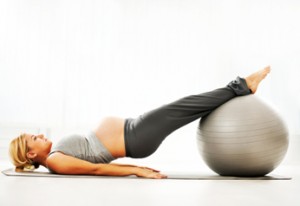It is important to remain active throughout your pregnancy, but a lot of women are unsure how to do this safely.
What is happening to your body during pregnancy?
From the first trimester of pregnancy, your body will start to release hormones which are helping your body to prepare for carrying a child and giving birth. The abdominals and pelvic floor muscles are being stretched and put under more pressure, while other muscles around your pelvis are becoming tight. As your bump gets bigger, your pelvis slightly tilts forward to allow you to balance. This can cause increased pressure on your lower back.
Why should you stay active?
Staying active during pregnancy has many benefits including:
- Stronger muscles=reduced aches and pains
- Reduced risk of clots
- Encourage a better position of baby for delivery
- Stronger abdominals and pelvic floor aid the pushing stage of labour
- Reduced risk of urinary incontinence post-natally
- Improved recovery after giving birth
- Reduced risk of abdominal separation
How to exercise safely?
Exercise is recommended throughout pregnancy (up until birth!) but these are exercises you should be avoiding:
- Sit ups/plank/excessive straining abdominal muscles/lifting heavy weights: this will cause high levels of intra-abdominal pressure which is not recommended during pregnancy and can put you at risk of getting abdominal separation.
- After 16-22 weeks pregnant (recommendations vary) do not exercise lying on your back for >2mins as it may affect the pressure of the blood flow in the vena cava.
- Avoid contact sports where there is a risk of you falling or getting hit.
- Avoid over-heating. Therefore do not exercise in excessive heat such as hot yoga. Also avoid high intensity aerobic exercise.
What exercises are recommended?
Anyone who is pregnant should clear it with their GP/consultant before beginning a new exercise program, especially if you have a high risk pregnancy. However, in general the following are safe forms of exercise to do during pregnancy:
- Pre natal classes including pilates/yoga
- Walking/light jogging
- Swimming
- Aqua aerobics
At Reform Physiotherapy and Pilates, we do pre-natal Clinical Pilates where we can adapt a pilates program specifically for you. Call Anne at 086 3582911 if you have any questions regarding pregnancy and exercising, or if you would like to start pregnancy Pilates.

